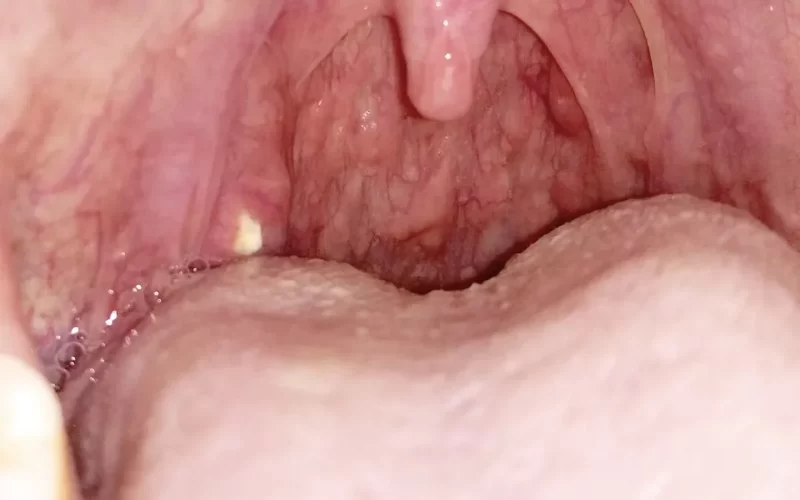
Understanding Tonsil Stones and Their Formation
Tonsil stones, or tonsilloliths, are small, hard deposits that form in the crevices of your tonsils. They often have an unpleasant odor and can cause discomfort in the throat. But can you get tonsil stones even if you maintain good oral hygiene? This is a common question, and the answer may surprise you. While good oral hygiene can help reduce the likelihood of tonsil stones, it does not guarantee that they will not form.
1. What Are Tonsil Stones?
Tonsil stones are clusters of calcified material that form in the tonsils, typically in the crypts or pockets located in the tonsil tissue. They can range in size from tiny, rice-like grains to larger, more noticeable lumps. Tonsil stones often consist of bacteria, mucus, dead cells, and food particles that get trapped in the tonsils. Over time, these particles harden, forming stones.
2. The Role of Good Oral Hygiene in Preventing Tonsil Stones
Good oral hygiene is essential for maintaining overall oral health, and it can certainly help in preventing some of the contributing factors to tonsil stone formation. Brushing your teeth at least twice a day, flossing regularly, and using mouthwash can help reduce the buildup of bacteria and debris in the mouth, which may contribute to tonsil stones.
However, despite having excellent oral hygiene habits, some individuals are still prone to tonsil stones. Why is this the case? Let’s explore some of the reasons why tonsil stones can form even with good oral care.
3. Why Good Oral Hygiene Doesn't Always Prevent Tonsil Stones
Even if you maintain impeccable oral hygiene, there are several factors that can contribute to tonsil stone formation. One key reason is the structure of your tonsils. If your tonsils have deep crypts or crevices, they may trap food particles, dead cells, and bacteria, even with regular brushing and flossing. Some people naturally have more pronounced tonsil crypts, which makes it easier for debris to get trapped, even if they practice good oral care.
4. Other Factors That Contribute to Tonsil Stones
Aside from oral hygiene, other factors can contribute to the development of tonsil stones. These include:
- Chronic Tonsil Inflammation: If you have a history of frequent tonsil infections or chronic tonsillitis, you may be more prone to developing tonsil stones.
- Dry Mouth: A dry mouth, often caused by dehydration or certain medications, can contribute to the formation of tonsil stones. Saliva helps wash away bacteria and food particles, so a lack of saliva can make it easier for debris to collect in your tonsils.
- Post-Nasal Drip: Conditions like allergies or sinus infections can lead to post-nasal drip, which causes mucus to drip down the back of your throat and may contribute to tonsil stone formation.
- Dietary Factors: Foods with strong odors, like dairy and garlic, can leave behind residues that contribute to the formation of tonsil stones.
5. How to Prevent Tonsil Stones with Good Hygiene
While it’s true that good oral hygiene cannot entirely prevent tonsil stones, there are several strategies you can use to minimize their formation:
- Brush and Floss Regularly: Continue brushing your teeth at least twice a day and flossing daily to remove food particles and bacteria that could contribute to tonsil stones.
- Use a Tongue Scraper: The tongue can harbor bacteria and food particles, which can contribute to tonsil stone formation. Using a tongue scraper can help remove debris and improve oral hygiene.
- Stay Hydrated: Drinking plenty of water throughout the day can help keep your mouth moist, wash away bacteria, and prevent dry mouth, which may reduce the risk of tonsil stones.
- Use an Antibacterial Mouthwash: Mouthwashes containing antibacterial agents can help reduce the buildup of bacteria in the mouth and throat, helping to prevent tonsil stones.
- Regularly Clean Your Tonsils: Gently rinsing your mouth with warm salt water or using a water flosser can help dislodge any particles stuck in your tonsils.
6. When to Seek Professional Help
If you experience symptoms such as persistent sore throat, difficulty swallowing, bad breath, or the sensation of something stuck in your throat, it’s important to consult with a healthcare professional. In some cases, tonsil stones may need to be manually removed by a doctor or specialist. For those who frequently experience tonsil stones, your doctor may recommend more advanced treatment options, such as a tonsillectomy (removal of the tonsils).
7. Personal Story: Overcoming Tonsil Stones Despite Good Oral Hygiene
Meet Sarah, a 30-year-old who had always taken excellent care of her oral health. She brushed her teeth twice daily, flossed regularly, and used mouthwash after every meal. Yet, she found herself struggling with tonsil stones for years. Despite her diligent efforts, she couldn’t understand why the stones kept forming.
Sarah’s story is not uncommon. She had deep tonsil crypts, which made it difficult for her to completely avoid tonsil stone formation, even with excellent oral hygiene. After speaking with her dentist, she learned that while good oral hygiene could certainly help, her anatomy played a significant role in her struggle with tonsil stones. With her doctor’s guidance, Sarah implemented additional measures like using a tongue scraper and staying hydrated, which helped reduce the frequency of her tonsil stones.
Today, Sarah’s tonsil stones are much less frequent, and she feels much more confident in her oral health routine. Her experience is a great reminder that while good oral hygiene is crucial, sometimes there are other factors at play in the development of tonsil stones.







 Tend East Nashville4.0 (319 review)
Tend East Nashville4.0 (319 review) Sea Mar Community Health Centers - 11th St3.0 (55 review)
Sea Mar Community Health Centers - 11th St3.0 (55 review) Florida Dental Implant Institute5.0 (67 review)
Florida Dental Implant Institute5.0 (67 review) Brick Dental Studio4.0 (101 review)
Brick Dental Studio4.0 (101 review) Midjersey Family Dentistry4.0 (86 review)
Midjersey Family Dentistry4.0 (86 review) Surprise Endodontics4.0 (170 review)
Surprise Endodontics4.0 (170 review) The Importance of Oral Health Education During Pregnancy for a Healthy Pregnancy
The Importance of Oral Health Education During Pregnancy for a Healthy Pregnancy Best Tips for Brushing Your Teeth Properly for Healthy Gums: Essential Techniques for Oral Health
Best Tips for Brushing Your Teeth Properly for Healthy Gums: Essential Techniques for Oral Health Why Skipping Dental Checkups Can Lead to Bigger Oral Health Problems
Why Skipping Dental Checkups Can Lead to Bigger Oral Health Problems Advantages of Porcelain Dental Restorations
Advantages of Porcelain Dental Restorations How Can Diabetes Cause Tooth and Gum Problems? Preventing and Managing Oral Health Issues
How Can Diabetes Cause Tooth and Gum Problems? Preventing and Managing Oral Health Issues Healthy Habits for Promoting Good Oral Health and Hygiene: Tips for a Healthy Smile
Healthy Habits for Promoting Good Oral Health and Hygiene: Tips for a Healthy Smile